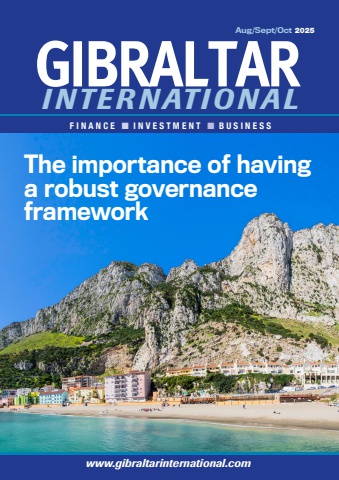Gibraltar Tames the Wild West
By Daniel Pitaluga, Senior Associate at Abacus Financial Services Ltd
What started out in January 2017 as another ordinary year, in the aftermath of a unpredictable 2016 which saw Donald Trump elected US President and in which Britain voted to leave the EU, slowly evolved into a revolutionary era with the rise of a phenomenon understood properly only by an elite of tech experts but which would, in a similar fashion to Trump and Brexit, shape the future of the financial world.
Bitcoin
This was, as you may have guessed, the emergence of cryptocurrencies, more popularly referred to loosely by the name of the first and leading cryptocurrency, Bitcoin. In January 2017, the price of a Bitcoin was around $950 and as the world started whispering about its potential, people flocked to any cryptocurrency exchange willing to accept them so they could get their hands on some precious and seemingly valuable Bitcoin.
Whether it was genuine investors who saw the potential of cryptocurrency as a new asset class, fraudsters who heard they could shelter money and make anonymous transactions, or anyone who heard of it as this year’s get-rich-quick scheme, the rush brought Bitcoin and blockchain technology directly into the global spotlight. By December, the price of Bitcoin had surged to over $20,000, representing a return for investors of over 2000% in under 12 months.
This, unsurprisingly, led to talk of an impending bubble bursting, one similar to the dot.com bubble in the late 90s, which would surely knock cryptocurrency off the grid once and for all and allow us to return to life before Bitcoin. This early period was a time when governments were unsure how, or indeed if, cryptocurrencies could be regulated; when banks were terrified of the threat this new technology posed to their well-established and over-relied-on system; the rise of scam Initial Coin Offerings (ICOs); and people purchasing their cryptocurrencies on unregulated exchanges. It could only be described as the crypto wild west.
Regulatory framework
2018 ushered in a time of change, with many governments banning or curtailing the use of blockchain technology and anything related to it. There were, however, a few jurisdictions which embraced the change and saw the opportunities it might give rise to.
The Government of Gibraltar made the bold decision to try to be the first jurisdiction to release a regulatory framework governing the use of distributed ledger (or blockchain) technology (DLT). It was a move similar to that made at the turn of the millennium when Gibraltar began regulating the iGaming industry and attracting high quality, new business which now sees an estimated 60% of bets made online processed by a Gibraltar-based company. The aim is to now open the doors to blockchain companies and emulate this success.
Fast forward to June 2018 and the Gibraltar Financial Services Commission (GFSC) is processing over 30 licence applications for blockchain companies, with big players such as Xapo and e-Toro publicly stating that Gibraltar will be integral to their future. The Government is about to release its second regulatory framework, this time focused on token sales. This aims to facilitate an ecosystem that eradicates scams and wild ideas and focuses on bringing high quality blockchain business to Gibraltar.
In addition to the well-established players, there will also be many smaller startups wanting to launch their token sales and bring their ideas to fruition. In order to do this and to abide by the new regulations they must set up in Gibraltar, or at least be able to evidence that the mind and management of the company is in Gibraltar. This might be achieved by the appointment of locally based corporate directors or via the relocation of the entire team, or part of its senior management to Gibraltar.
The pursuit of a regulatory license does not come without its challenges. The first step for any prospective licensee is to obtain a legal opinion from a Gibraltar lawyer. Once the legal opinion is attained, the company will be incorporated and a bank account opened. There are currently two crypto-friendly banks in Gibraltar. The lawyers will assist with any license applications required. These key steps to a successful relocation are not the only considerations when setting up. The company will require additional services, such as company secretary, corporate governance advice, accounting and local tax compliance.
The bigger picture requires not just these services but a whole range of others that require local know-how and the right professional networks. Whether it involves obtaining office space, recruiting skilled staff, executing payroll or even a company pension scheme. Any company wanting to move to Gibraltar will benefit from a trusted partner to take care of their obligations, while the entrepreneurs focus on what they do best, their business, ideas and plans and prepare for that successful launch.





